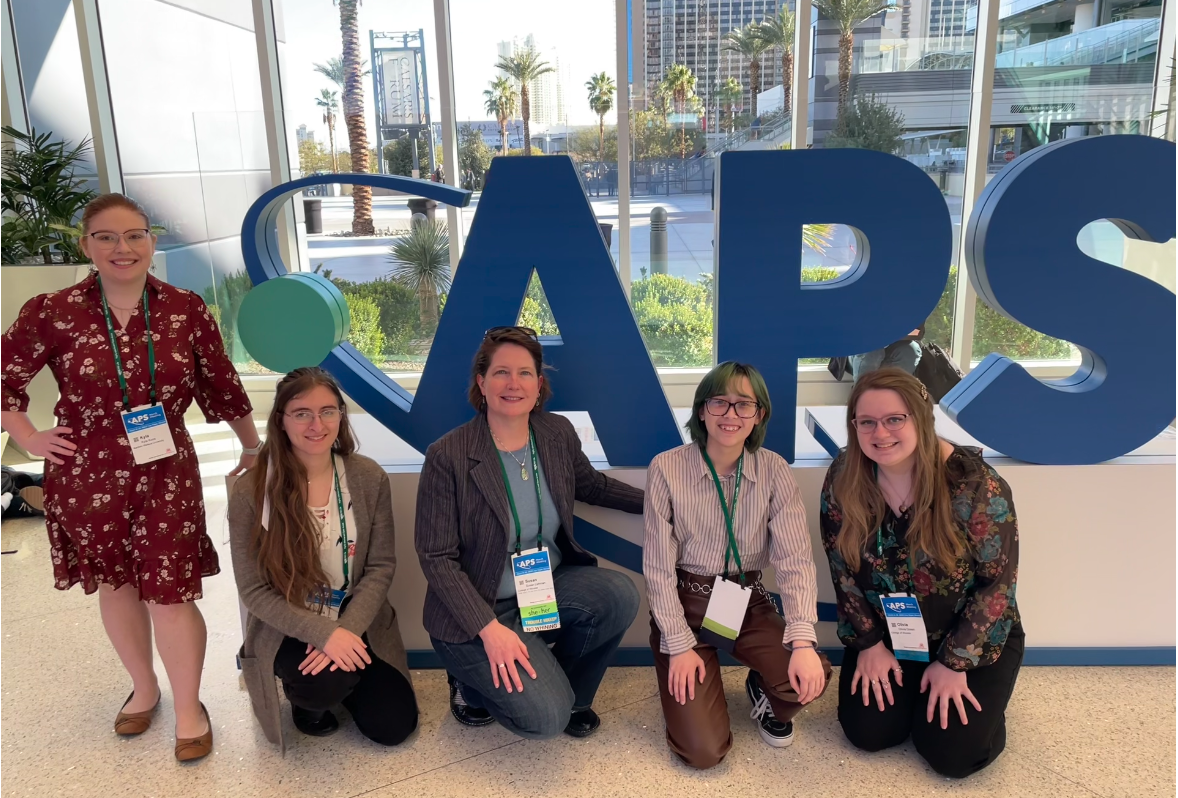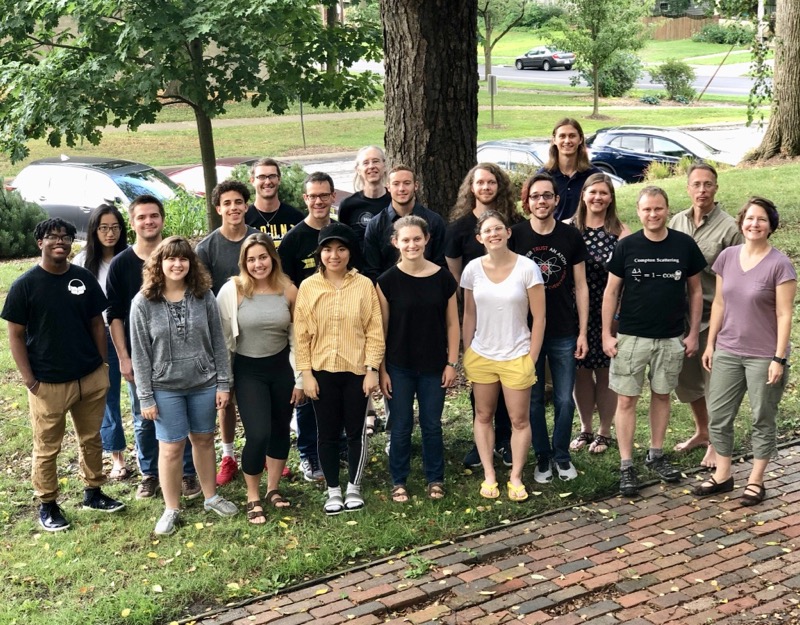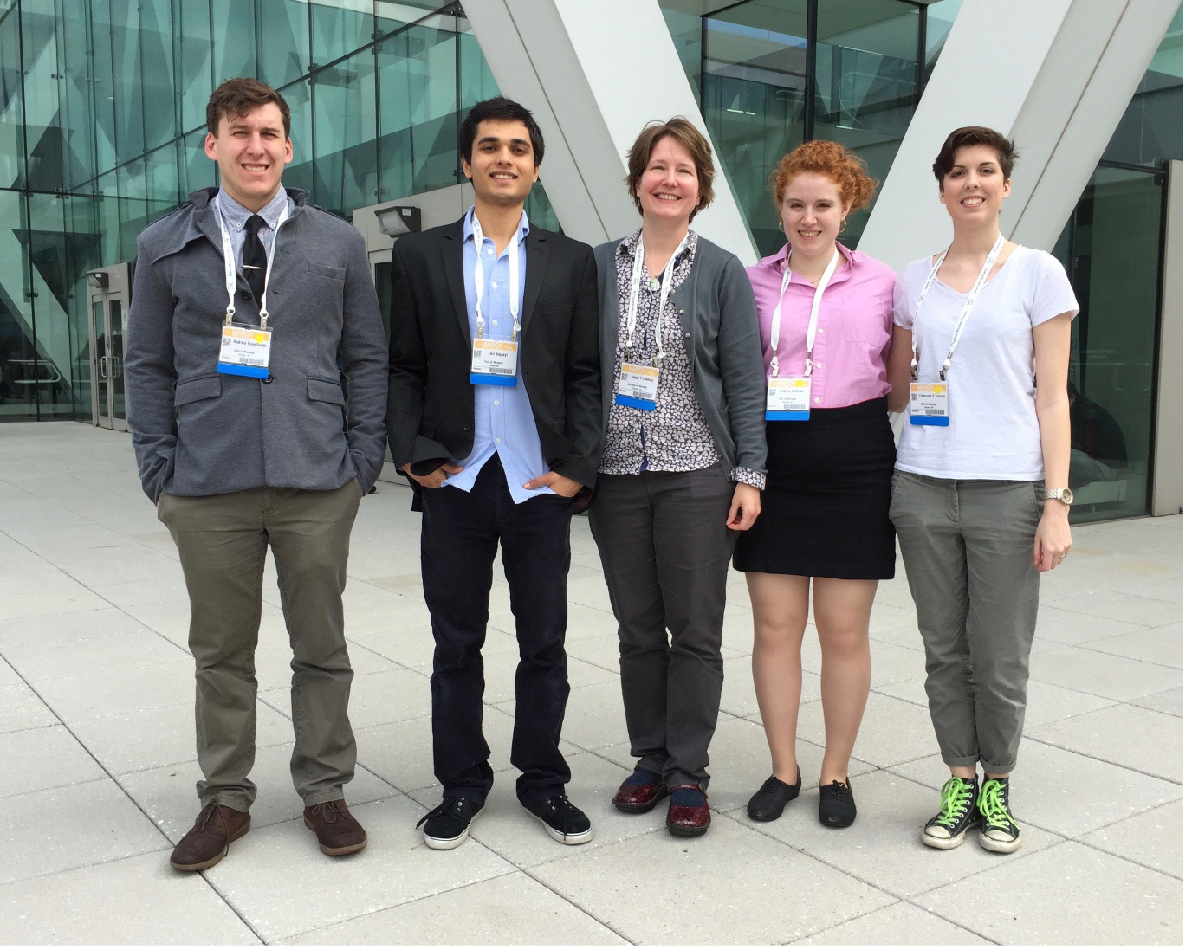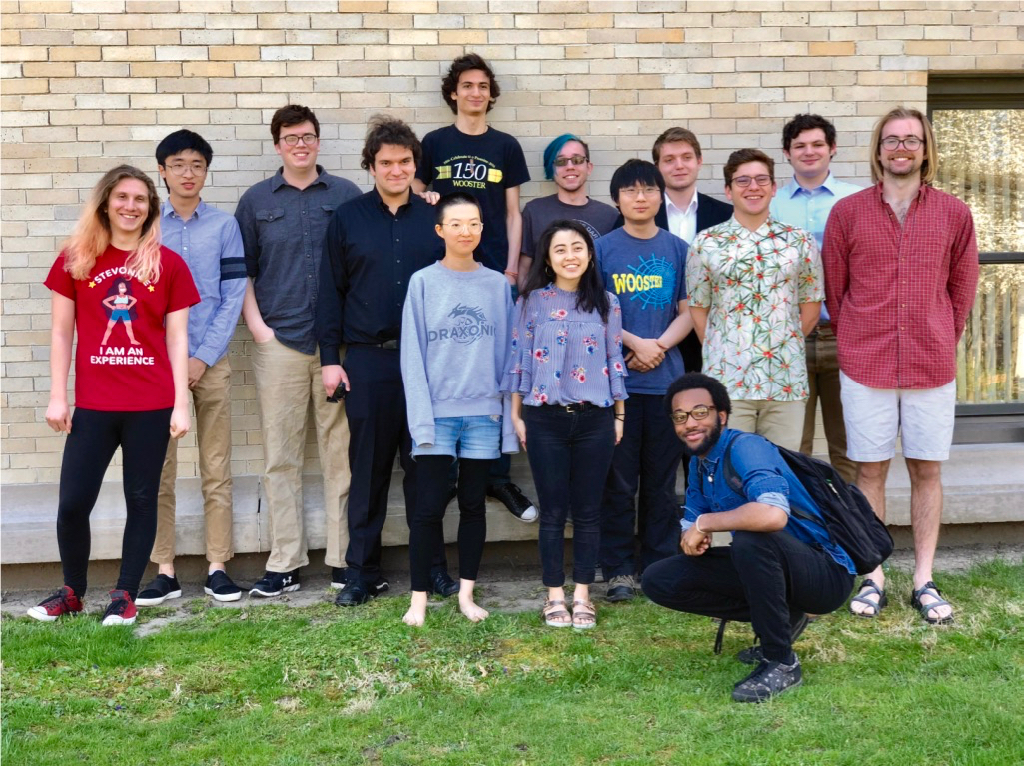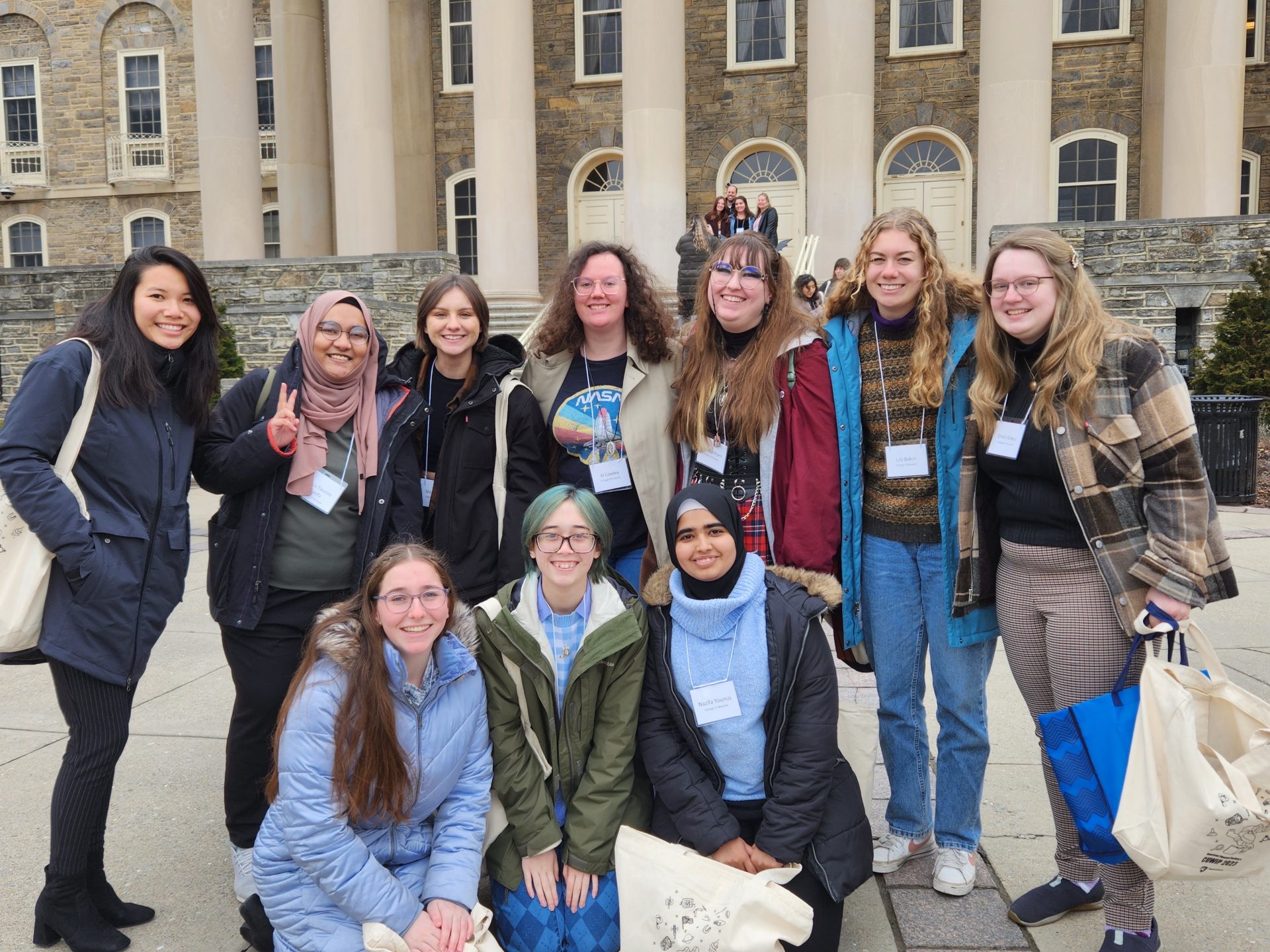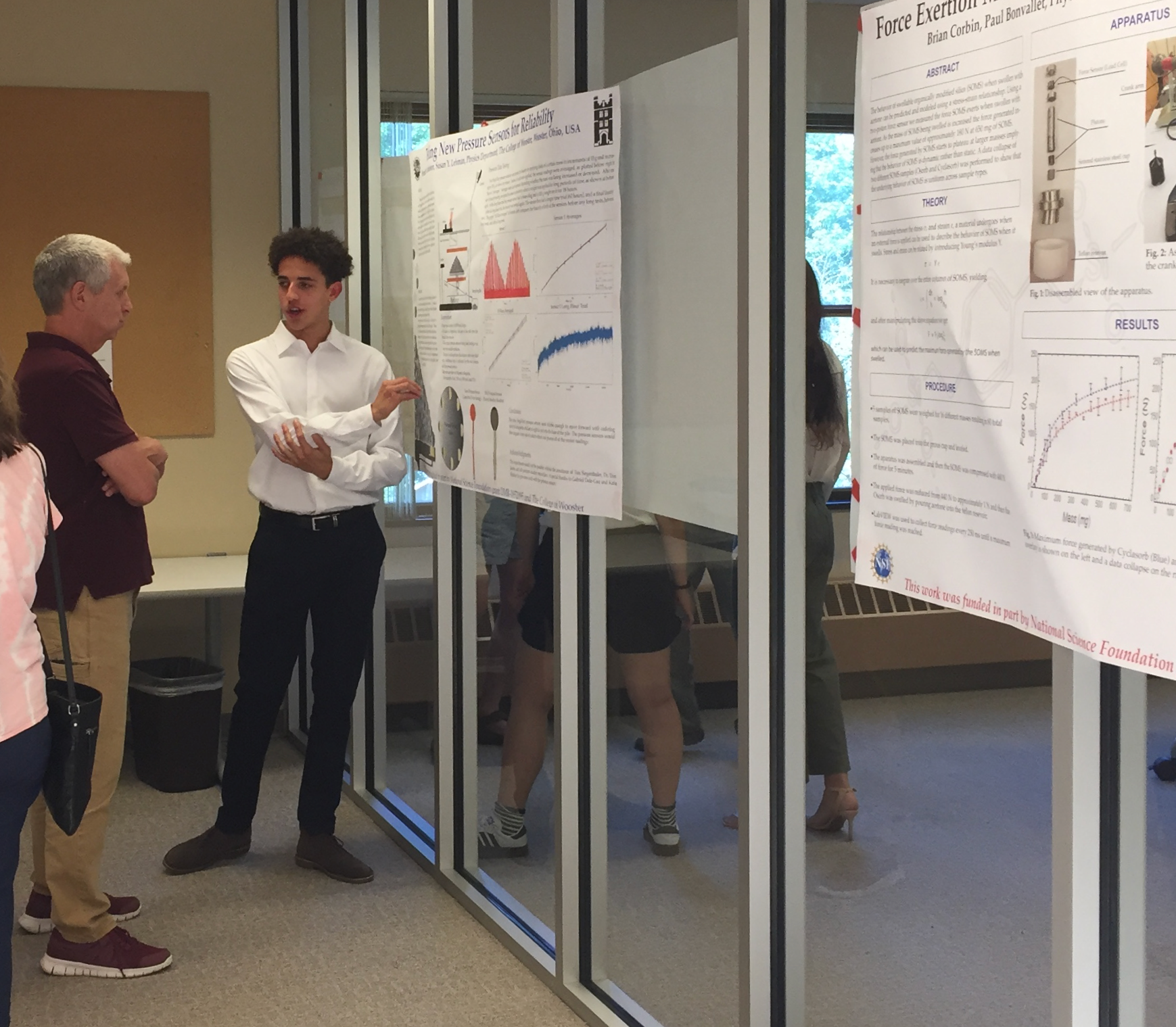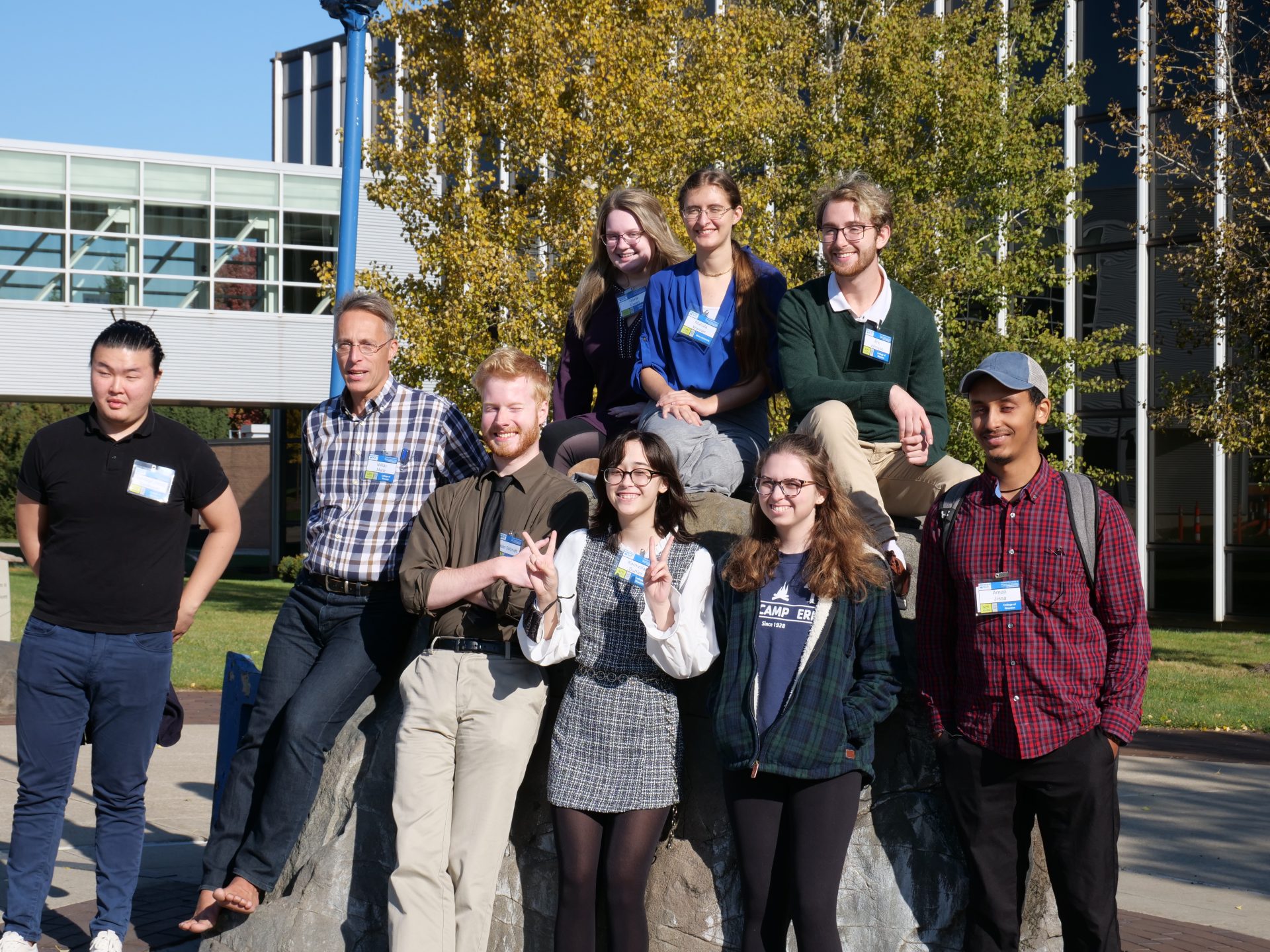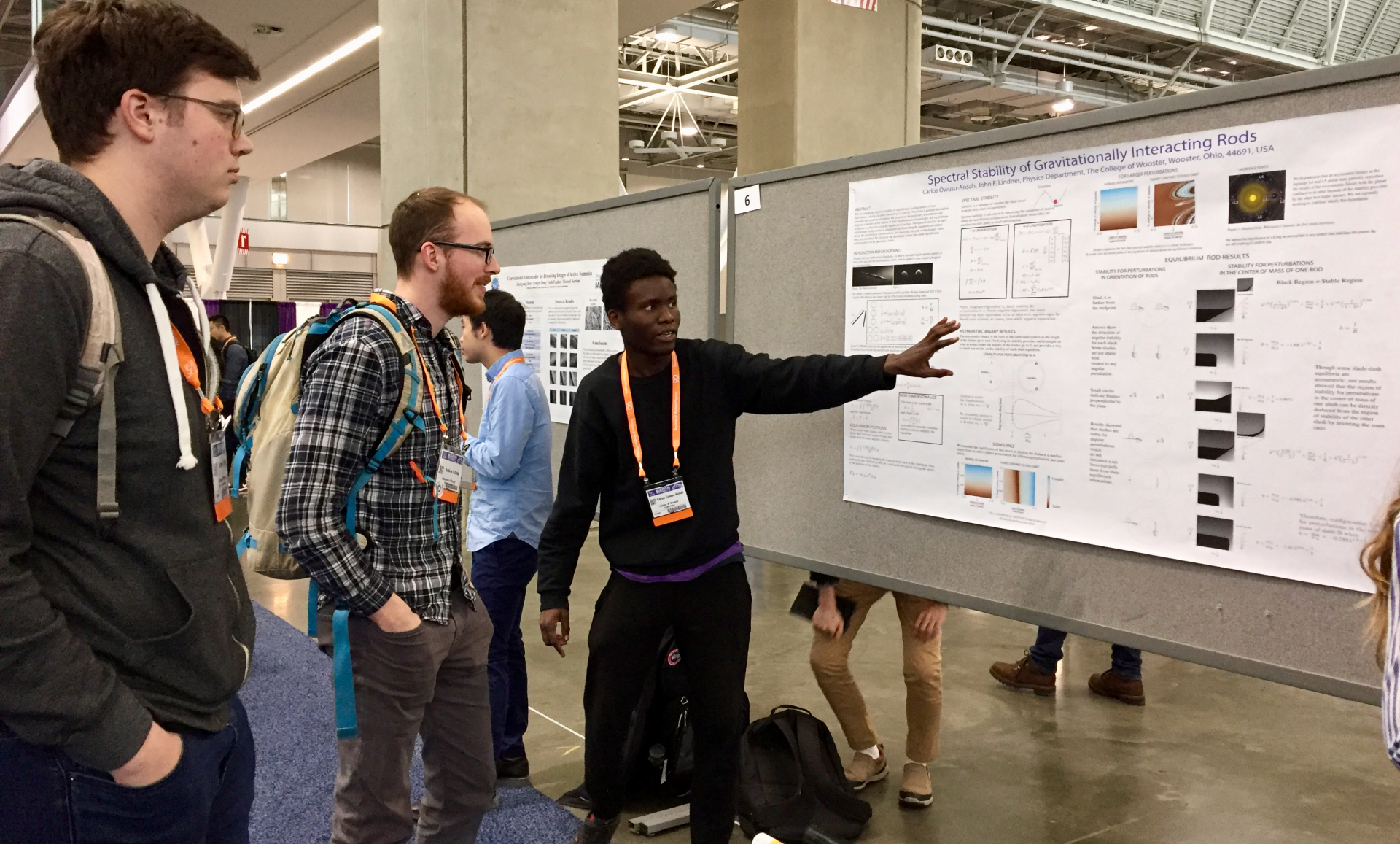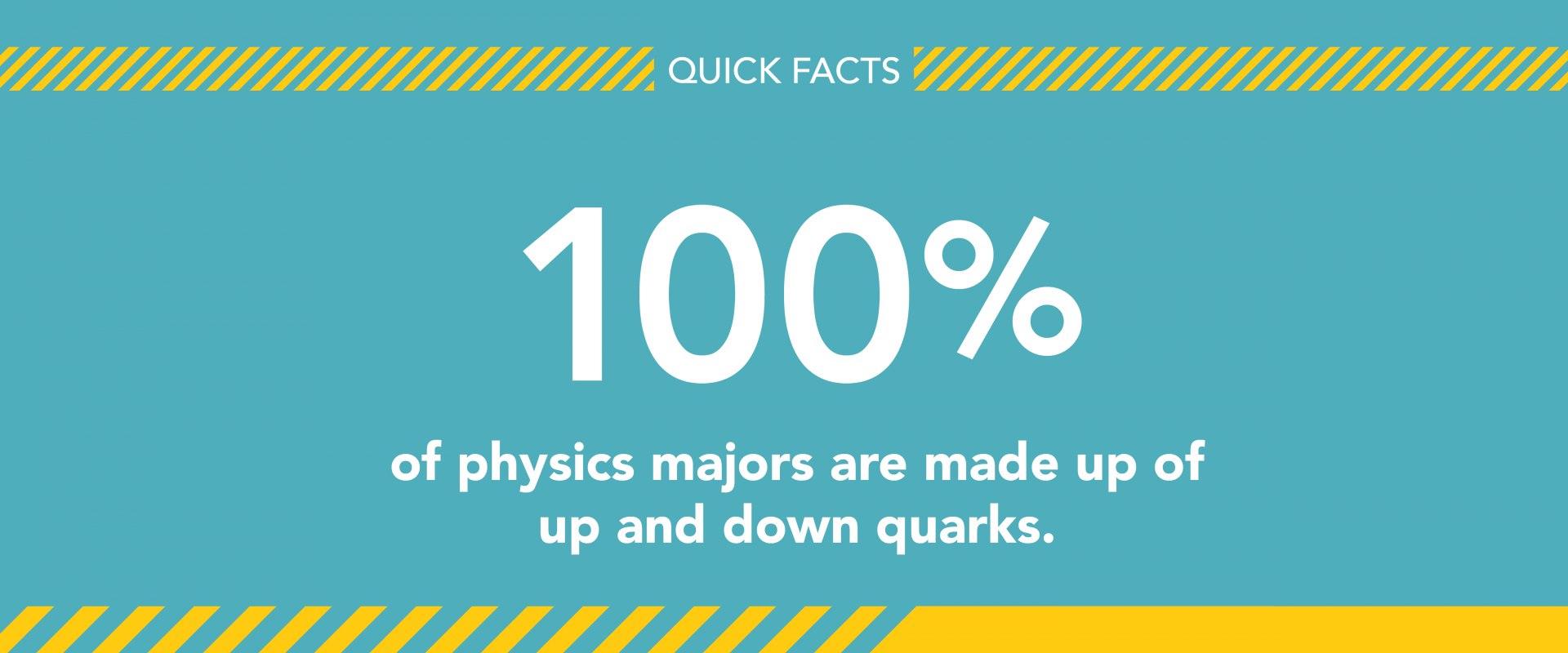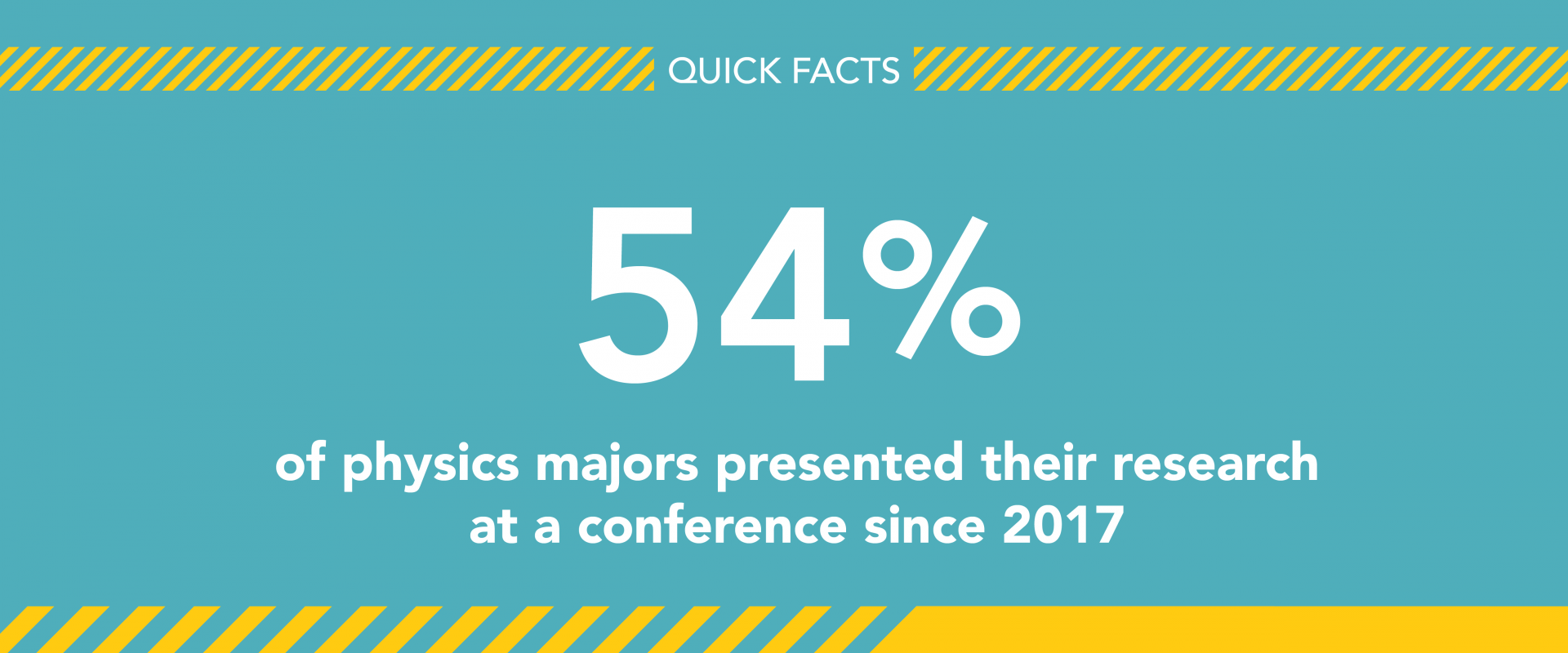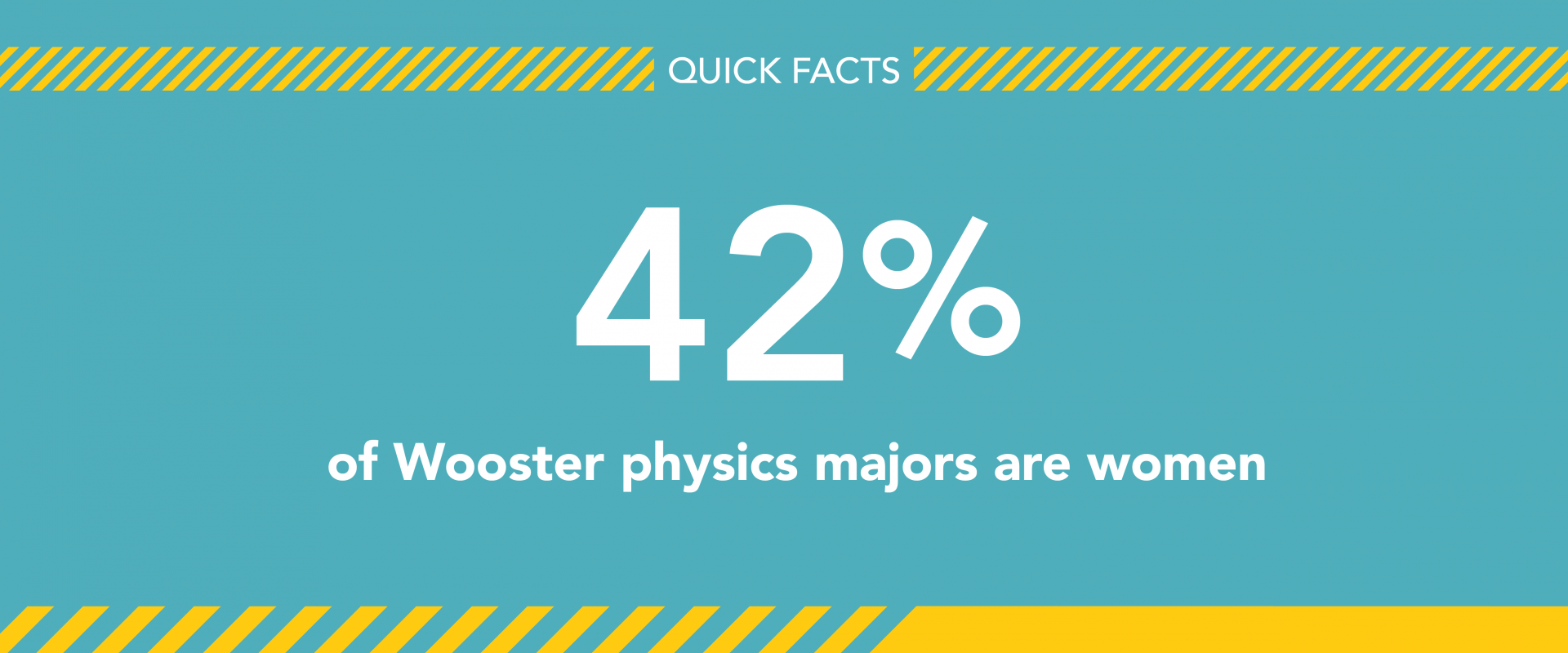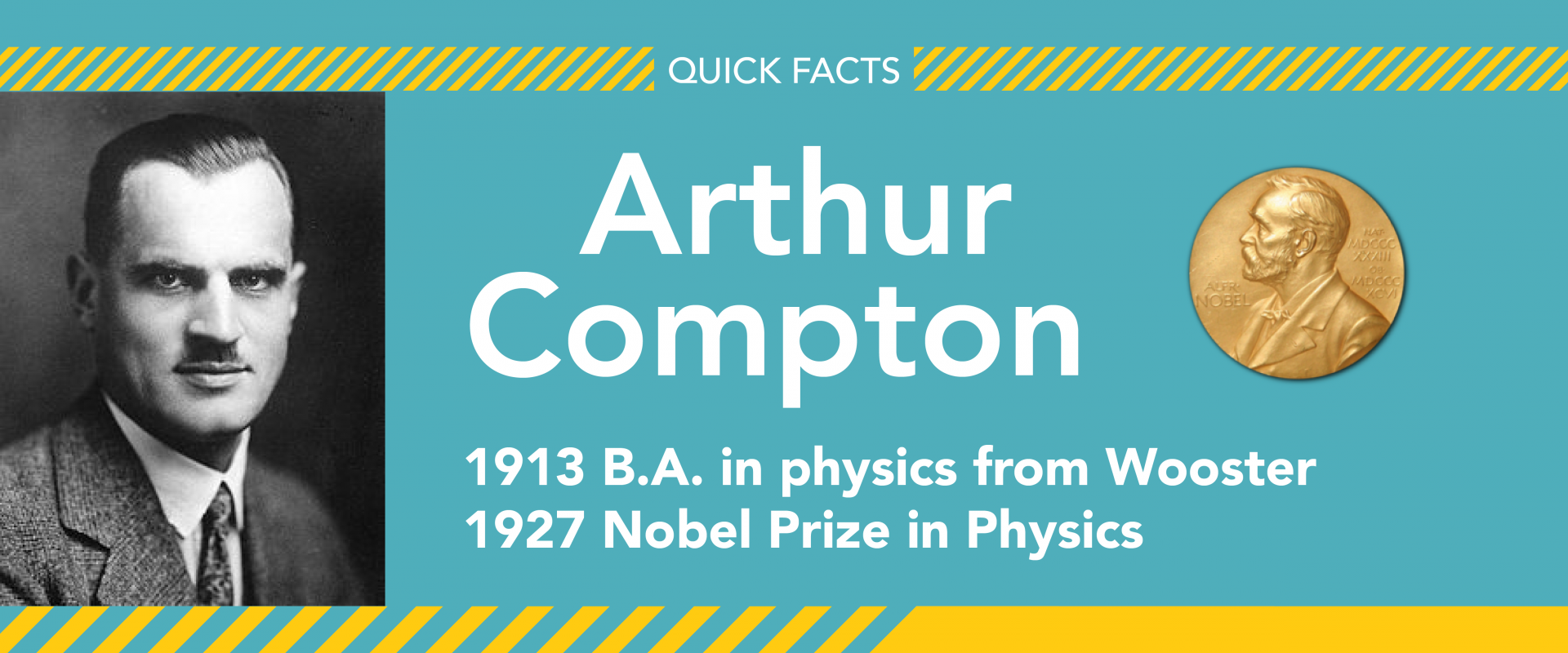in May 1923, Wooster graduate Arthur Holly Compton ’13 published IN PHYSICAL REVIEW the article “A Quantum Theory of the Scattering of X-rays by Light Elements“, which earned him the 1927 Nobel Prize in Physics.
Physics at The College of Wooster
Using the language of mathematics, physicists try to understand the patterns and rhythms of nature, from atoms to galaxies. Majors can take their careers in a lot of directions after graduation. Majoring in physics at a liberal arts college like Wooster gives students the opportunity to learn in small classes and conduct original research under the guidance of faculty mentors. The multidisciplinary atmosphere at Wooster allows physics majors to double major or participate in a pre-professional program in preparation for graduate or professional schools. Many physicists work as engineers, and many engineers have physics degrees, but physics majors can be found in a number of fields. The problem-solving abilities and analytical skills provided by a physics education equip physics majors to work in schools and on college campuses, in corporate settings and government labs, in the astronaut corps, or even on Wall Street.
Why major in physics at a liberal arts college like The College of Wooster?
With one-on-one guidance from a faculty mentor, each physics major has the opportunity to experience the excitement and rewards of a year-long research project, culminating in a senior independent study thesis. The labs and facilities at Wooster range from a state-of-the-art computer-based lab for introductory physics courses to a scanning probe microscope used in student and faculty research. In the past, three Wooster physics majors have been selected as finalists for the American Physical Society’s national LeRoy Apker Award for outstanding undergraduate research in physics, as a result of their senior independent study work. In addition, seven students won the Barry M. Goldwater Scholarship for college sophomore and juniors and five students won a Graduate Research Fellowship Program Award from the National Science Foundation, which provides three years of support for their graduate education.
Senior Independent Study
The yearlong senior thesis project, or Senior Independent Study (Sr. I.S.), allows you to experience the beauty and cohesiveness of physics by working on an extended project closely with a faculty advisor. There are few projects, even though narrow in scope, that do not require a breadth of understanding and a dependence on the lecture and laboratory material covered in the major courses. Thus, the senior thesis is an integral part of your education. It can provide a stimulating climax to your college career while, at the same time, it can be a defining introduction to your profession.

